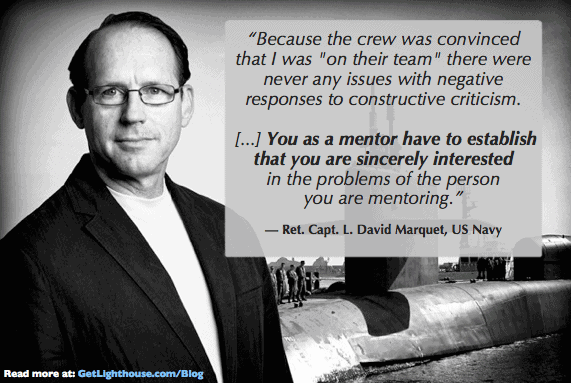“I wonder what they’ll be like?”
“I hope they don’t waste my time.”
“I hope they can answer my questions.”
“What if they don’t like me?”
Whether you’re the mentor or the mentee, there are a lot of questions that can run through your mind before your first mentorship meeting. It’s an important moment worthy of your focus, attention, and preparation.
Your first mentorship meeting lays the foundation for a successful mentoring relationship. Starting on the right foot is critical, because you don’t get a second, first impression.
The stakes are also high for both sides. Research shows many benefits of mentorship meetings:
- Sun Microsystems found that employees who received mentoring were promoted 5 times more often than people who didn’t have mentors.
- Research published in Harvard Business Review showed that 84% of CEOs in formal mentoring programs reported that mentors helped them avoid costly mistakes.
In this guide, we'll tell you how you can make your first mentoring meeting a great one.
You will learn everything you need to know, from pre-meeting preparation to post-meeting follow-ups for both mentors and mentees.
Table of contents:
Don’t have a mentor, but wish you had one? You can read our guide, how to find a mentor first. Then use this guide for your first mentorship meeting.

What to Do Before Your First Mentoring Meeting
Being prepared is key to starting your mentoring relationship off on the right foot. The time you spend getting ready before that first meeting will pay off in building an effective, lasting relationship.
For Mentees:
As a mentee, you want to show you are taking this seriously and are ready to make the most out of your mentor’s time. To do that:
- Bring thoughtful questions. Don’t expect your mentor to guide the conversation. Spend time beforehand thinking of smart questions you want to ask.
- Do your homework on them. Learn about your mentor’s background, skills, and experience. Understand how they can specifically help you reach your goals. Show you “get” who they are, and avoid obvious questions you can find out on your own time.
- Be ready to take notes. You’ll retain and apply the advice better if you have notes. Come with a notebook, note taking app, or whatever you need to make sure you remember the advice you receive.
- Have specific asks in mind. Know exactly what you want from your mentor upfront. Don’t waste time with generic asks like “give me feedback.” You need to have clear requests, ideally related to what they know best..
Laying this groundwork will help you stand out in your first mentor meeting. You will set the tone that you will be an engaged, eager mentee that will respect the time and value of your mentor.
In particular, bringing a list of questions you want their guidance on can help you significantly. For example, you may ask for their advice on building key skills for a promotion, overcoming time management challenges, boosting team productivity, and more:
- What are the most important areas I need to master to get promoted to the role I want?
- What skills gaps do you think I have?
- What are some techniques I can use to better manage my time?
- What are key actions I should take to help my team (or yourself) get more done?
If you want more ideas for good questions to ask your mentor, then check out our post "37 Key Questions to Ask a Mentor to Transform Your Career".
For mentors
As the mentor, you set the tone for your mentoring relationship. Being prepared is a key part of that. If you want them to be prepared, you should be too, right?
Start by clearly defining your goals for your mentorship. Answer questions like:
- What do you hope to help them with?
- How can you best support the mentee's professional growth and development?
- What can you not do that you want to make clear they should seek help elsewhere?
Going in with clear intentions helps you be a more supportive and helpful mentor.
It's also important to discuss any rules, tips, or expectations during that first session. For example:
- Explain that it is the mentee's responsibility to come prepared with questions and take notes at each meeting.
- Tell them when and how they can contact you outside your sessions if they have questions or need help.
- Establish a consistent cadence for your meetings, so they know when they’ll meet with you going forward.
- Set your standards and expectations for what they need to do for you to want to continue meeting with and supporting them.
By planning these out ahead of time, you ensure your mentee knows what to expect, and that you’ll do your part in these meetings, too.

Remember to build rapport!
Whether you’re a mentor or mentee, building rapport is an important first step. Connecting with others means getting to know them as humans and finding ways you relate to them, or appreciate what they’re passionate about.
While you may spend a lot of your time on the nuts and bolts of your relationship we’ve outlined for both sides, make sure you start with rapport. It’s a great way to both break the ice, and find out what you may have in common.
You can learn more about building it and get ideas for how you can connect with them regardless of your generational, cultural, or other differences in our "Guide to building a good rapport with anyone you work with".

Making a Good First Impression at Your Mentorship Meeting
Being prepared is only half the battle. Once you arrive at the meeting, the real work begins.
Bring an open mind, but also a critical one; in this meeting, you should be building rapport with them and getting to know them, while also assessing whether you'll be a good fit working together.
Some personalities go well together, like peanut butter and jelly. Others clash, like oil and water. Unlike a typical manager-employee dynamic, mentoring is outside the normal reporting structure. So if you're not a good fit, it’s usually okay to find another mentor or mentee. No one has to force it.
Yet, you won't know unless you put your best foot forward. Do everything you can to make it a great partnership, or quickly recognize it's not a match. Neither of you should feel obligated to meet multiple times if things felt like a poor fit from the start.
Here’s how to make the most of your first mentorship meeting:
For mentors
As a mentor, you want to make a great first impression to show your value and commitment to supporting your mentee. This comes both from your preparation, and how you approach the meeting.
Your actions speak louder than any words, so practice the following starting in your first meeting:
- Give your mentee your full attention and focus! Put your phone away.
- Actively listen by paying attention to their answers and asking thoughtful follow up questions.
- Keep their interests at the forefront, by learning about them, and then reinforcing them with any advice you provide.
Also, don't be shy about sharing your pet peeves or pitfalls they should avoid. It's better for them to know now than to find out later when you're frustrated. For example:
- If you’re a stickler for punctuality, tell them.
- If flakiness drives you crazy, tell them.
- If lack of follow-through will make you check out, tell them.
- If poor grammar bugs you, tell them.
- If it takes a while to build trust and be willing to open your network, let them know that.
The goal is to set clear expectations so you can build an awesome mentorship relationship, not bottling up issues until the relationship sours or you quietly stop meeting with them. Instead, be open and honest in a nice way.
By taking this proactive approach, your mentee will appreciate you showing you have a genuine interest in them and your efforts to prevent problems down the road.
For mentees
As a mentee, you want to do your best during this critical first meeting to show your mentor that you are serious about benefiting from their guidance and support.
Just like you put in real effort to prepare for the meeting, now you want to demonstrate your commitment to making this a productive relationship and discussion. To do that:
- Share your plan and goals, so you get the right things from your precious time with your mentor.
- Ask good questions, like the ones you’ve prepared, and follow up questions to clarify.
- Take notes, and emphasize any commitments or next steps you should make.
- Show appreciation for helpful feedback, coaching, advice, and introductions.
And while all of these help make a good first impression, remember to also do your part to make sure that you’re a good match for your mentor.
To know if you’re a good match, consider bringing up topics like:
- Specific areas you need coaching in, to ensure they have skills in those areas.
- Your preferred learning style, so they provide support in the ways that help you best.
- Any blockers or constraints you have, so they don’t hold unrealistic expectations over you.
While this may seem like a lot, it’s the best way to make sure that you have a great relationship with your mentor, or you quickly realize they’re the wrong fit. Either way, this gives you your best chance for success.

Wrapping Up and Next Steps
Ending your first mentoring session well is critical for building momentum in your relationship.
By the end of your first mentoring session, you should know:
- A little bit about each other (aka - built some rapport)
- The goals of your mentoring relationship
- If you’re a good fit to work together
Assuming that you are a good fit, and not mutually agreeing to seek a different mentor / mentee, there are a few things both sides can do to ensure the mentoring relationship is strong going forward.
For mentees
As a mentee, you bear the majority of the responsibility to ensure you make the most of the meeting. After all the preparation and effort you’ve put into following our advice so far, you’ll want to close your first mentorship meeting the right way.
First and foremost, you want to make sure you took away the right things from your discussion.
Before leaving the meeting, go over your key points and next steps to make sure you’re both in agreement on them. In particular, if something is unclear - speak up! It's better to double-check than to miss or misunderstand something important.
Also, don't be afraid to directly ask if your mentor thinks this is a good fit. Both of you should be honest now, rather than drag out an unproductive relationship. If they don't think it's a good fit, politely ask for feedback on why, so you can keep it in mind as you seek your next mentor.
Finally, showing appreciation and gratitude is a great way to make a good impression and show you value your mentor’s investment in you.
Send a thank-you note after the meeting expressing your appreciation and noting the most important next steps you'll take based on your first meeting. A message like this can make a great impression:
"Hi [mentor name],
Thank you again for taking the time to meet with me today. I really appreciated hearing your insights on [key topics discussed].
Based on our discussion, I'm going to [action items you'll take]. Please let me know if I misunderstood anything or you have any followup thoughts on our discussion today.
I look forward to working with you in future sessions.Your guidance is invaluable as I work on [goals].Thanks,
[Your name]"
A little extra effort and thought at the end of your meeting, and shortly thereafter can make a big difference in what you get out of your mentorship meetings, while also motivating your mentor to go the extra distance for you.
For mentors
While the onus is on your mentee to do the heavy lifting to organize what you discussed and take the appropriate actions, there are a few things you can do to help.
First, make sure to re-emphasize any critical, actionable advice you want them to act on before your next discussion. It never hurts to ensure they don’t miss something you think is really important, especially if you talked about many things.
It’s also helpful to confirm the cadence of your future meetings and when your next meeting is, so they know what to expect. This lets them know how much time they have to complete any action items you’ve discussed. At the same time, it’s helpful to set expectations on communication between sessions. Some mentors are very responsive over email or text, while others are unable to be responsive outside of meeting time.
Finally, note any promises or commitments you're making to help them before your next mentoring session.
While none of these take much time on your part, remembering to discuss them as you wrap up can ensure you both make the most of your mentoring relationship.
Final word
Whether you're a seasoned mentor, or a mentee just starting out, approaching your first meeting with a new mentor/mentee with care lays the foundation for a strong relationship. The best way to do that is to be prepared and have a plan.
For mentors, remember the impact you can have by sharing your experiences and opening doors. Take the time to nurture your mentee's growth. And for mentees, recognize the invaluable opportunity you have. Come ready to listen, learn, and put the advice into action.
When both sides are engaged and committed, that first session can turn into a strong relationship that guides careers, unlocks potential, and builds legacies.
Have you done your best to make the most of your mentoring relationship?





